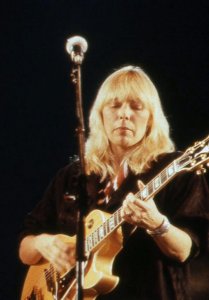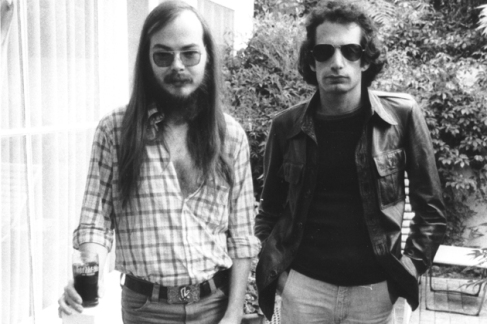So here’s an embarassing confession. I wrote this on an evening train from Manchester to London only to find the next day that I’d already published a piece about this song! Oh well, I like this one better, so I’ve junked the old one. This is what happens when you’ve been running a blog for three and a half years and lack of Wi-Fi means you can’t check your archives…
Imagine an album produced by Ted Templeman, and featuring the instrumental talents of Paul Barrere, Victor Feldman, Michael McDonald, Billy Payne, Klaus Voorman, Herb Pedersen, Fred Tackett, Albert Lee, Chuck Findlay, Jim Horn, Plas Johnson and Eddie Van Halen. Released on Warners, with a cover photo by Joel Bernstein. That record would be basically the most 1970s thing ever. Or maybe the second-most 1970s thing ever, after Rickie Lee Jones’s first album.
That record is Nicolette, the solo debut album by Nicolette Larson, which spawned a huge hit single in her version of Neil Young’s Lotta Love.
Larson had sung backing vocals on Young’s Comes a Time, which featured his own ramshackle reading of Lotta Love, on which he was backed by Crazy Horse rather than the Stray Gators, who were on the rest of the record. Lotta Love, Young has said, was his response to his road crew playing Fleetwood Mac’s Rumours day after day. That isn’t exactly the same as an attempt to write a Fleetwood Mac-style song, and Lotta Love didn’t have the lyrical depth of a Stevie Nicks composition, the deceptively lushness of a Lindsey Buckingham arrangement, or the steady groove of anything graced by John McVie and Mick Fleetwood. Frankly, it’s a little hard to hear Young’s reading of Lotta Love as in any way Mac influenced.
Larson’s Lotta Love (which she claimed Young encouraged her to record after she heard the song on a cassette tape Young left in his car), on the other hand, sounds like Stevie Nicks being taken to the disco. The standard mix of the song, rhythmically, is pure Mac, with Fleetwood’s trademark heartbeat kick-drum pattern (most associated with Dreams) present throughout verses and choruses, with a subtle hint of disco in the middle-eight’s four-on-the-floor kick drum and busier hi-hat figures. On top of this rhythmic chassis is electric piano, a prominent sax riff and soul-influenced rhythm guitar, all of which take it a way away from FM territory. Ted Templeman (Doobie Brothers, Van Halen) was an astute producer who knew what would sell. Fleetwood Mac playing disco? In 1978? That’d sell. It did.
Fortunately the record feels a lot less cynical than that makes it sound. Larson had a quite wonderful voice, and on Lotta Love her enthusiasm for the material was palpable. In harmony with Young on Comes a Time, she sounded a little like Emmylou Harris, but on her own record, her voice stood revealed as its own thing: soulful, sweet but slightly husky, and touch of grit in her higher range. With such strong material to work with, the success of Lotta Love was the most natural thing in the world. Unfortunately, Larson (not a prolific songwriter herself) would seldom have such strong material to work with; a forgettable duet with Steve Wariner is her only other notable chart success, and her albums are stuffed with little-known songs by fine writers of the calibre of Andrew Gold, Jackson Browne and Holland-Dozier-Holland, almost as if she was hunting for another Lotta Love in the overlooked work of these big-name writers. It never quite happened; not as simple as it seemed, Lotta Love’s brand of deceptively casual perfection proved impossible to recreate.
Larson died in 1997, of liver failure and cerebral edema. She was 45 – far, far too young.



